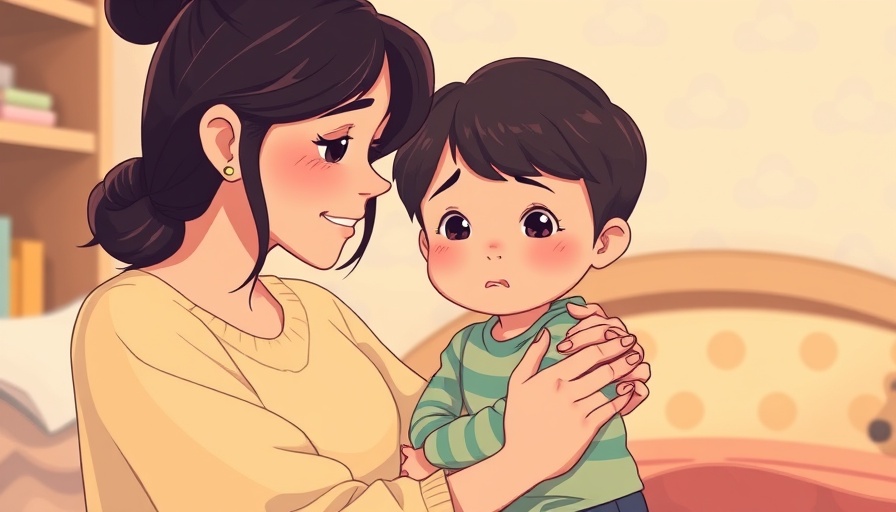
Understanding the Emotional Journey of Parenting
Parenting isn't just about raising a child; it's about healing our own wounds in the process. Too often, we find ourselves reflecting on moments from our own childhood as we navigate the various challenges of parenthood. It's in these moments we can connect with our children on a deeper level, allowing ourselves to revisit those feelings we were taught to suppress. This emotional reckoning has profound implications for both us and our kids.
The Mirror of Childhood Emotions
As parents, we often experience our children's emotional responses as mirrors that reflect our own past experiences. When our kids face meltdowns and anxiety, we may feel an overwhelming urge to respond with authority or frustration. However, by pausing to breathe and embody mindfulness, we can transform these moments into opportunities for connection rather than control. This practice not only comforts our children but also allows us to investigate our unresolved feelings.
Practicing Mindfulness: A Journey of Co-Regulation
Mindfulness is often misinterpreted as a perfectly calm state of being. In reality, it emerges in messy parenting moments where both parent and child face emotional turmoil. It’s less about achieving tranquility and more about establishing a safe space for feelings to coexist. When we approach our children with empathy during difficult moments, we are not only guiding them but also regulating our nervous systems through co-regulation. This process can build a foundation of trust and safety.
How Mindfulness Transforms Parenting
Embracing mindfulness in parenting may not eliminate challenges, but it certainly changes how we experience them. When a tantrum arises, instead of reacting with frustration, we can choose to engage with understanding. It’s about remembering that emotions are meant to flow, not be hidden. This shared journey fosters resilience in both parent and child, building skills that promote personal growth and self-development.
Building an Empathetic Environment
Creating spaces where emotions are acknowledged is crucial. It shifts the narrative that feelings need to be fixed or ignored. Rather, they should be welcomed as part of the human experience. Through presence and connection, we help our children build self-development skills that last into adulthood, allowing them to cope with their emotions effectively and empathetically.
Share Your Own Experiences
As we embark on this journey, reflections on our parenting experiences can guide us and others. How have your childhood lessons shaped your approach to parenting? Sharing personal stories stands to not only validate our journeys but also inspires a collective understanding, deepening community bonds and aiding in personal growth.
 Add Row
Add Row  Add
Add 




Write A Comment